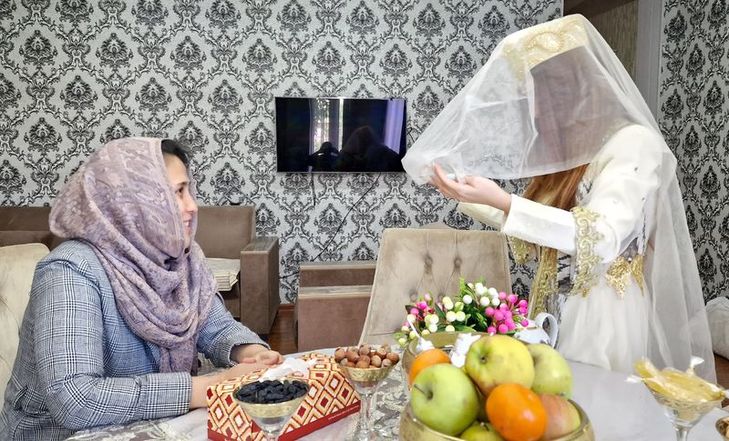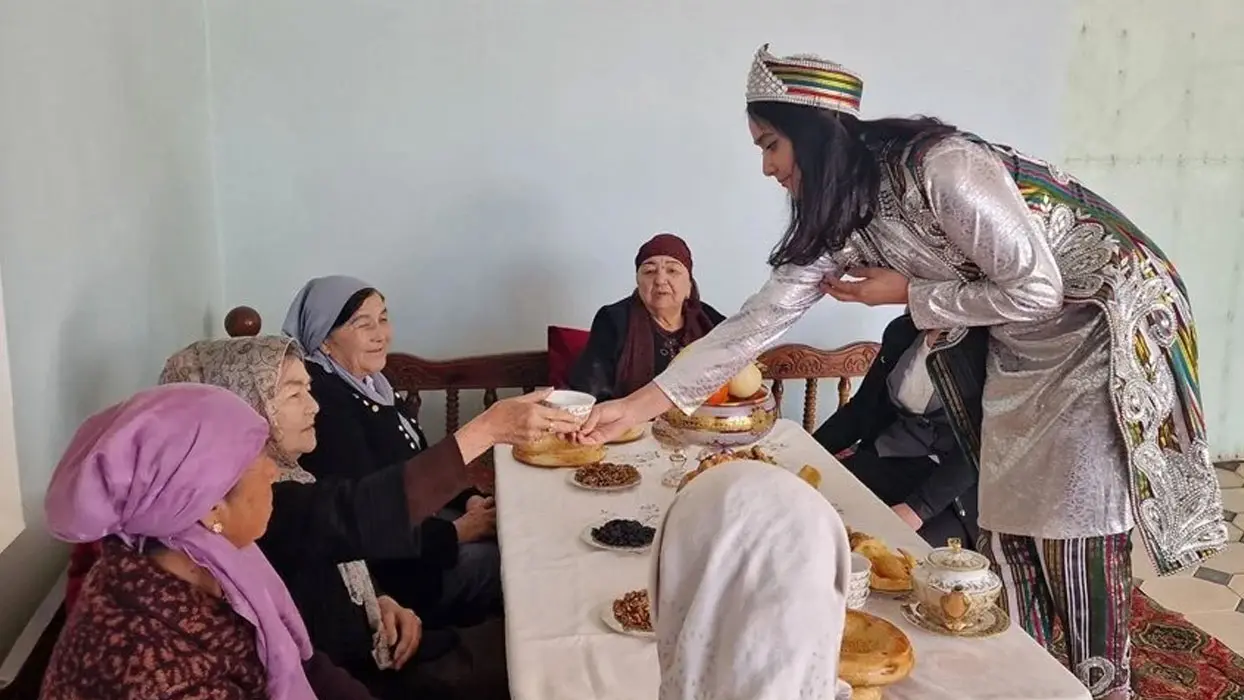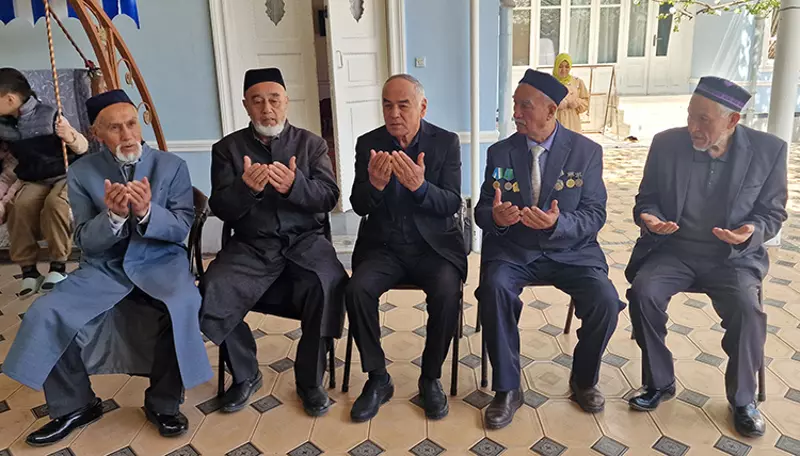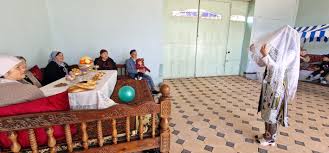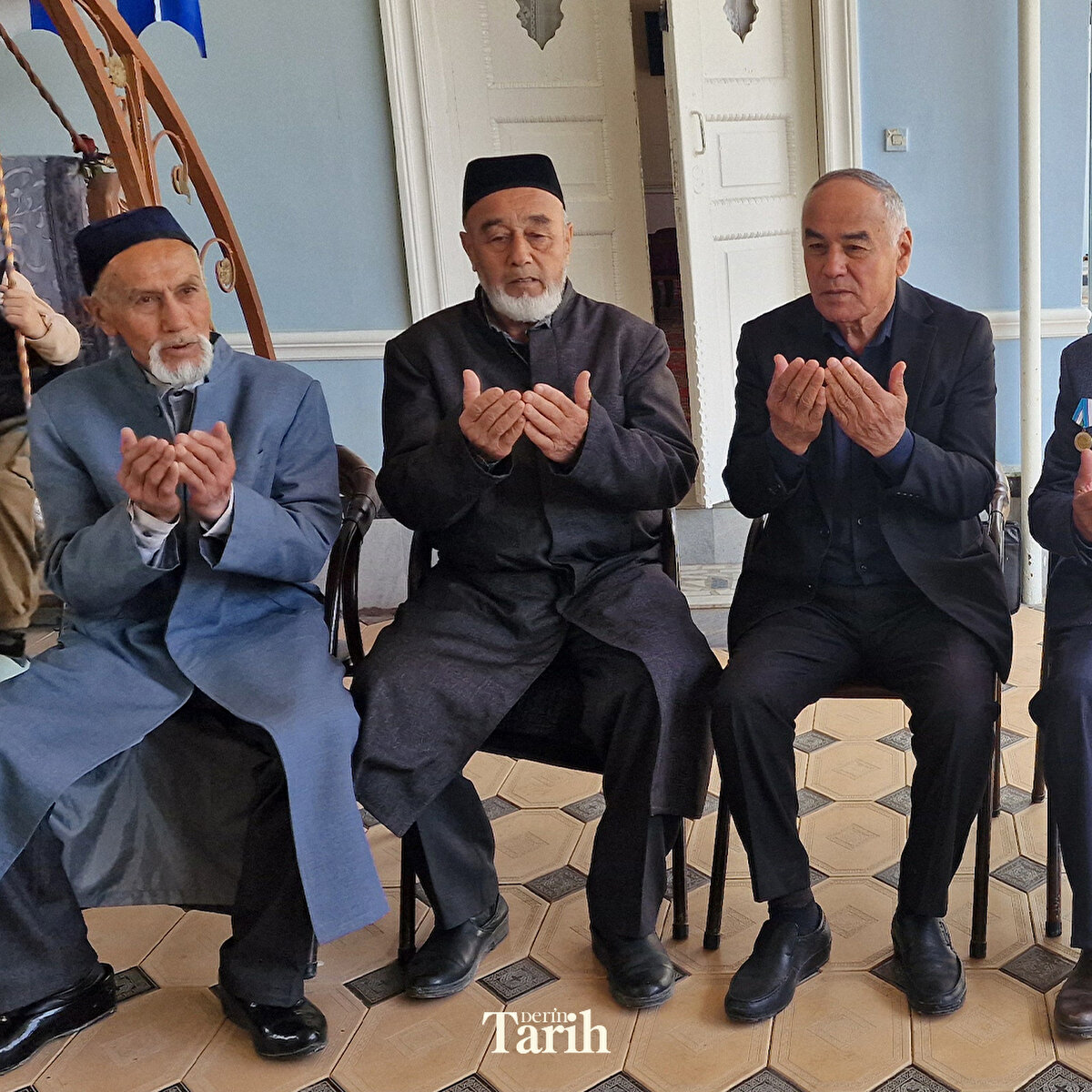
The tradition of "Fatiha-tui" and "greeting the bride" during religious holidays in Uzbekistan
The tradition of "Fatiha-tui" and "greeting the bride" during religious holidays in Uzbekistan
In Uzbekistan, the traditions of "Fatiha", "greeting the bride" and "seeing off the bride" come to the fore during Ramadan and Eid al-Adha.
In Uzbekistan, where religious holidays occupy a special place, families begin preparing for the holiday in the morning.
In the country, family elders, village elders and the sick are mostly visited during the days of Bayram, and visiting graves during Bayram has become a tradition.
The customs of "meeting the bride", "wedding greeting" and "fatiha", practiced during Ramadan and Eid al-Adha, have been passed down from generation to generation and have been preserved for centuries.
In addition to visiting graves on religious holidays in Uzbekistan, according to a custom known as "Fatiha", Uzbek families set the table in their homes during the first holidays of Ramadan and Sacrifice after the death of one of their relatives. Those who visit the funeral home on holidays once again express their condolences to the owner, then sit down at the table and read Fatiha to the soul of the deceased.
While the host treats the guests with Uzbek pilaf, the guests leave the house after tasting the dishes and desserts placed on the table.
THE CUSTOMS OF THE "BRIDE'S GAZE" AND "BRIDE'S GREETING"
In Uzbekistan, young families who will celebrate their first holidays after marriage retain the custom of "seeing off the bride" and "greeting the bride" on holidays.
Accordingly, relatives and residents of the neighborhood make a "bride-accompanying" visit to the family with a new bride.
An Uzbek girl, who is a newlywed, holds a white handkerchief on her head at both ends and lifts it to show her face, and greets those who come to visit them for the holiday, bowing 3 times. The guests also wish the bride all the best, for example: "May your happiness be permanent," "May God be a husband on a pillow."
Later, the bride offers hand-embroidered handkerchiefs or inscriptions that she sewed herself to the elders of the neighborhood, and sweets that she prepared for the neighborhood children.
The guests sit at the festive table prepared by the bride, taste the food and desserts, and then pray for the happiness of the new family.
DURING THE SOVIET UNION, RELIGIOUS HOLIDAYS WERE CELEBRATED IN SECRET
Sabirkhoja Narkhodjaev, 85, an elder of the family visited by the AA correspondent, said that religious holidays have a special significance in the lives of Uzbek families.
According to Narkhodzhayev, all his children and grandchildren visit them on the days of the holiday, and on the way home after prayer, he buys sweets and distributes them to his grandchildren along with festive clothes.
Noting that religious holidays were secretly celebrated in families in the former Soviet Union, Narkhodjaev noted that after Uzbekistan gained independence, Ramadan and Eid al-Adha began to be openly celebrated.
"With independence, we have regained our religious holidays," Narkhodjaev said.
"DURING THE HOLIDAYS, OUR HOUSE AND YARD ARE FILLED WITH OUR CHILDREN AND GRANDCHILDREN"
Sabirodji's wife, 84-year-old Marifat Narkhodjayeva, said that Uzbek families begin preparing for the holiday in the morning, and the daughter-in-law or daughter gets up early in the morning and cleans the yard at home.
Explaining that the preparation for the festive table was started by the women of the family, Narkhodzhayeva said that on the day of the holiday, first of all, they visited the elders of the family, the elderly and the sick.
According to Narkhodzhayeva, holidays further strengthen the unity between family members and relatives: "During the holidays, our house and yard are filled with our children and grandchildren. This makes us very happy."
